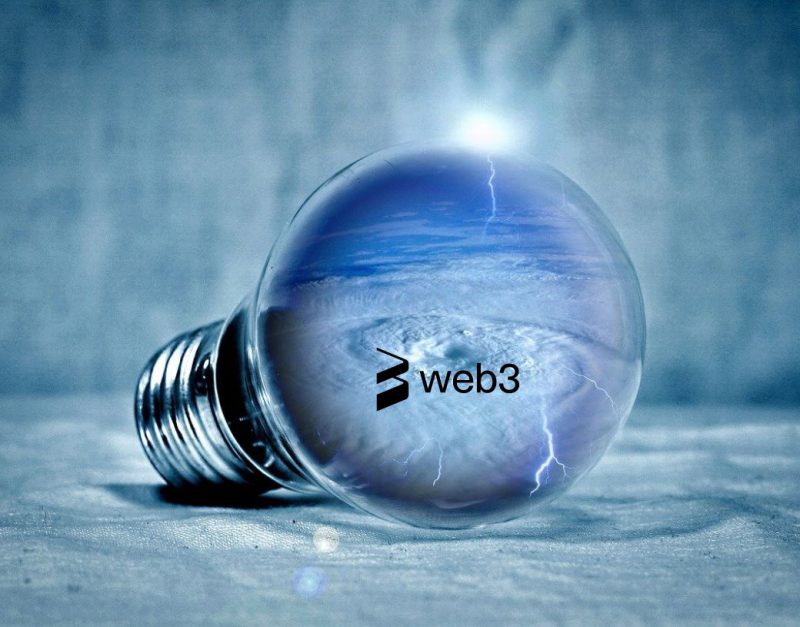The recent United States government sanction against virtual currency mixer Tornado Cash set alarming signs in the crypto industry. Many speculated this move could translate into more sanctions levied by the government, rendering the privacy aspect of Web3 “meaningless.” Some even suspect a far-reaching impact on the Bitcoin Lightning Network.
Is a Tornado Storm Incoming?
In a decentralized world envisioned for Web3, Web3 protocols play an important role. While Web2 sites like Facebook, Google, Twitter, LinkedIn, and others get to enforce rules and force users into toeing the line, Web3 protocols believe in a completely decentralized world. With decentralization much discussed over the last couple of years and it has raised alarms in the longstanding institutions, a part of the world believed it was the next natural order.
However, as we looked into decentralization, privacy applications play an essential role in safeguarding users’ information from being sold to hackers or the sales wing of a product company. As Tornado Cash’s status was reversed to an illegal entity in the United States, fear among other privacy-focused web3 applications rose.
The co-founder of Polkadot-based Manta Network was among those worried about the future of the Web3 space and its product. Manta Network is a layer-1 privacy protocol that enables private transactions in decentralized finance [DeFi]. Like Tornado Cash, it anonymizes coin transactions to offer privacy to users. However, this feature has been quite irksome for the authorities.
Speaking to a media publication, Shumo Chu, the co-founder of Manta Network, expressed concerns about privacy protocols getting caught up in the same crosshairs. This could add to censorship to the point it would “essentially make the entire Web3 space meaningless,” as per Chu.
Chu noted that the steps taken by the U.S. authorities were seemingly in the national security interest as the North Korean hacker group Lazarus was using Tornado Cash to launder the stolen funds. However, a ban on the protocol highlights the lack of understanding of decentralized systems based on open-source code that can be located and operated anywhere.
Chu noted,
“It’s quite possible regulators just don’t understand distributed blockchain technology and how open source code can be anywhere. [They] may have actually thought Tornado Cash developers deliberately helped North Korean hackers.”
While the arrest of developers associated with the project was not unheard of, the ban on the protocol is “a new paradigm,” signaling the attempt to put a reign on the code. However, per Chu, even if the U.S. government tries, it will not be very successful in controlling the privacy developers since many are located outside its jurisdiction.
“They are banning the protocol instead of some people. Essentially this is a piece of code from the Ethereum blockchain.”
Chu further noted, “If the US tries to implement draconian measures over privacy devs, it won’t go very well for them.”
Bitcoin Lightning Network in Trouble?
While such was the state for privacy developers and applications, Bitcoin’s lightning network also poses certain anti-money laundering risks that could pose a thorn among regulators, per Patrick Hansen.
He highlighted,
The EU AML regulations could categorize the professional lighting nodes as regulated payment services and entail many regulatory requirements like potential customer authentication. Hansen added,
“More generally, assets routed through the lightning network (& potentially nodes that engage in criminal activities) could be seen (& flagged) as high-risk under AML frameworks, & very hard to off-board to regulated players like exchanges (like assets that went through mixers).”
Although these were speculations based on available knowledge of the law, the regulators will have to play an active role in understanding the existing services before placing a ban on them. The current focus of the regulators was only on the bad actors, but the tech should also be promoted to be used for an excellent cause.
Although Tornado Cash was banned out of fear of bad actors, the move was seen as “unconstitutional” by many in the crypto industry, including Kraken CEO Jesse Powell.
In the meantime, here is something David Brin said which requires thought,
“When it comes to privacy and accountability, people always demand the former for themselves and the latter for everyone else.”





